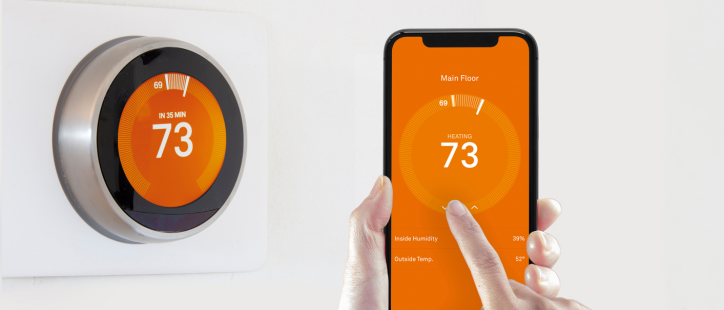Your home’s HVAC (Heating, Ventilation, and Air Conditioning) system is a critical component for maintaining a comfortable and healthy indoor environment. Proper HVAC maintenance not only ensures that your system operates efficiently but also extends its lifespan, saving you money on repairs and energy costs. Here, we’ll provide you with 9 essential residential HVAC maintenance tips to keep your system running smoothly year-round.
**1. Regularly Replace Air Filters: One of the simplest yet most crucial maintenance tasks is replacing your HVAC system’s air filters. Clogged filters restrict airflow, making your system work harder and less efficiently. Check your filters every one to three months and replace them as needed.
**2. Clean and Clear Vents and Registers: Ensure that vents and registers are free from obstructions, such as furniture, curtains, or debris. Blocked vents can disrupt airflow and reduce heating and cooling efficiency.
**3. Inspect and Clean Evaporator and Condenser Coils: Over time, dirt and debris can accumulate on the evaporator and condenser coils, hindering heat transfer. Schedule annual professional maintenance to clean and inspect these coils for optimal performance.
**4. Keep the Area Around Outdoor Unit Clear: Trim back vegetation and remove debris around your outdoor HVAC unit to ensure adequate airflow. A clear space helps the system run efficiently and prevents overheating.
**5. Check Refrigerant Levels: Insufficient refrigerant can lead to decreased cooling efficiency. If you notice your home is not cooling as it should, contact a professional technician to check and recharge the refrigerant if necessary.
**6. Clean the Condensate Drain Line: Algae and debris can clog the condensate drain line, leading to water leaks and potential damage. Clean the drain line annually to prevent blockages.
**7. Inspect Ductwork for Leaks: Leaky ducts can lead to wasted energy and uneven heating or cooling. Have a professional inspect and seal any leaks in your ductwork to improve system efficiency.
**8. Test Thermostat Accuracy: Ensure that your thermostat accurately reflects the temperature in your home. If it’s not working correctly, it can lead to energy waste. Consider upgrading to a programmable or smart thermostat for better control.
**9. Lubricate Moving Parts: Some HVAC systems have moving parts that require lubrication for smooth operation. Check your owner’s manual or consult a technician to determine which parts need lubrication and schedule regular maintenance accordingly.
Why Residential HVAC Maintenance Matters
Regular HVAC maintenance offers numerous benefits for homeowners:
**1. Improved Energy Efficiency: A well-maintained HVAC system operates more efficiently, reducing energy consumption and lowering your utility bills.
**2. Extended Equipment Lifespan: Proper care and maintenance can significantly extend the lifespan of your HVAC system, delaying the need for costly replacements.
**3. Enhanced Indoor Air Quality: Clean filters and components contribute to better indoor air quality by removing dust, allergens, and pollutants from the air.
**4. Fewer Repairs: Regular maintenance can catch and address minor issues before they escalate into costly repairs, saving you money in the long run.
**5. Consistent Comfort: A well-maintained HVAC system provides more consistent and reliable heating and cooling, ensuring your home remains comfortable year-round.
**6. Reduced Carbon Footprint: An efficient HVAC system consumes less energy, reducing your carbon footprint and environmental impact.
Your home’s HVAC system is a vital investment in your comfort and well-being. Regular residential HVAC maintenance ensures that it operates efficiently, extends its lifespan, and saves you money on energy costs and repairs. By following these 9 maintenance tips, you can enjoy a comfortable and energy-efficient home while also contributing to a healthier environment and reducing your carbon footprint.



